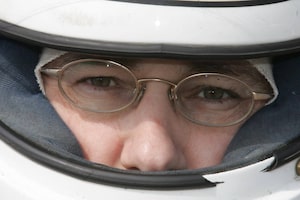Pirelli tires at the Hungaroring circuit in Mogyorod, near Budapest, Hungary on July 25, 2013. The Hungarian Grand Prix will be held on Sunday.BERNADETT SZABO/Reuters
The Formula One circus gets back in action this weekend at the Hungaroring in Hungary, and with any luck, fans have seen an end to the troubles with the Pirelli tires.
The much-maligned rubber supplier will bring a revised tire that marries the construction from last season to the 2013 compounds.
The teams – sans Mercedes – tested the revised tires at the British Silverstone Circuit, with no car experiencing any of the catastrophic failures that marked the late June British Grand Prix at the same track.
Then again, it doesn't mean every team will benefit from racing the new tires that were tested, especially the ones that had the previous rubber figured out.
"Obviously we got a little bit of an impression at Silverstone but I think it was directed to enable Pirelli to understand their tire more," said Force India driver Paul di Resta.
"Friday is going to be busy: It's the first time that we get to try some set-up things and actually understand them but yes, we did have a good idea of where the tires were working and how to use them over a race distance. That's not to say that this won't continue and, on the flip side, it may suit the car better."
Mercedes was banned from the Young Driver Test due to its participation in an unauthorized private session in May with tire supplier Pirelli, where it tried out tire compounds using this year's car. A Fédération Internationale de l'Automobile (FIA) tribunal found the team gained an advantage from the test and barred it from participating in the Silverstone test, which also allowed the other teams to bring race drivers to the track to test the tires to be used in Hungary.
Now that doesn't mean there will be an end to the rubber's sometimes dramatic fall off in performance, especially with high temperatures predicted for the weekend. Then again, degradation will also be limited by the slow nature of the tight Hungaroring Circuit and the low lateral loads it puts on the tires.
Another monkey wrench thrown into the mix is the new pitlane speed limit brought about by the injury of a cameraman during the German Grand Prix. British cameramen Paul Allen who works for the Formula One television crew was hit by a tire that fell off Mark Webber's Red Bull as the driver left his pitbox. Allen suffered a broken shoulder and some cracked ribs in the incident.
The sport's governing FIA countered with new safety measures for media, which ban everyone but marshals and team personnel from the pits during qualifying and the race. In addition, the FIA announced Thursday it would also impose a limit of 25 media in the pitlane during practice sessions.
The original measures announced in early July also included a reduced pitlane speed from 100 kilometres per hour to 80 km/h beginning this weekend, which might play a role in the tire strategies. The 20 km/h reduction will add about four seconds to the time the cars spend in the pits, something that could be the difference between winning and finishing second for teams planning on an extra stop. Most teams will likely go with a two-stop strategy in Budapest.
With a track that is the second toughest for overtaking after Monaco, it's no surprise that six of the past 10 winners in Hungary started on the front row, with four victories going to the polesitter. Then again, the Hungaroring can serve up a surprise every so often. In 2006, Jenson Button, now with McLaren, got everything right in changing conditions and scored his maiden F1 win from 14th in the grid.
It will also be interesting to see how well the Mercedes' Lewis Hamilton and Nico Rosberg perform after being shut out of the Silverstone test. Mercedes has surged following its May track time with Pirelli, taking two wins and three poles in the four races after the Barcelona test.
"It's going to be tough this weekend definitely," said Hamilton, a three-time winner in Hungary.
"We've got a bit of catching up to do, but that's what we do best and we just have to work as hard as we can this weekend to try to understand the tires and put ourselves in the best position possible. We have a lot of work to do to continue to improve our race pace, but I anticipate it will be a difficult weekend."
F1 fans might also want to try to get their fill on the weekend, as there will be a four-week summer recess after the cars cross the finish line in Budapest in this Sunday's Hungarian Grand Prix.
For more from Jeff Pappone, go to facebook.com/jeffpappone
Twitter: @jpappone
 Jeff Pappone
Jeff Pappone